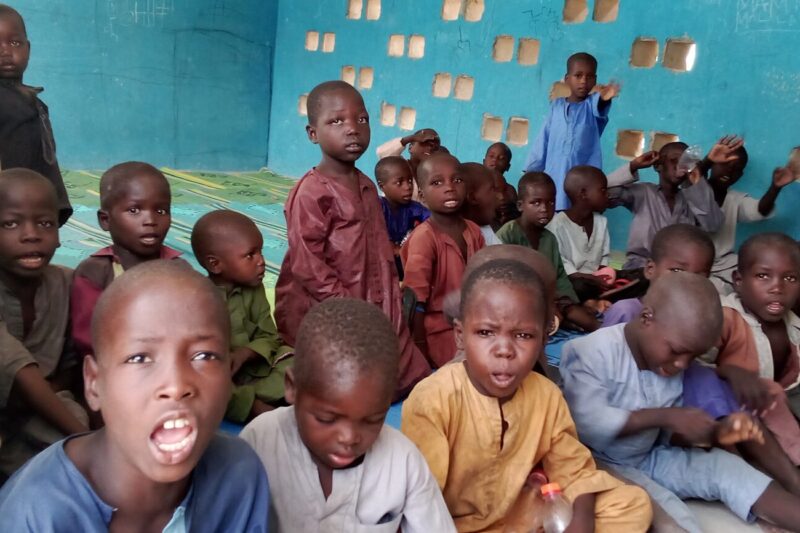Fourteen years of ongoing conflict in Borno State in Nigeria’s northeast has had a devastating effect on thousands of internally displaced children, most of whom have not been able to go to school – and the chances of them ever getting an education are slim.
At the peak of the insurgency schoolchildren were killed, abducted and displaced, leading to high levels of trauma. Many schools were destroyed, many burnt down.
Since the shutdown of state IDP camps in December 2021, most children live with what’s left of their displaced families in informal camps in host communities. These camps are usually overcrowded and lack adequate sanitation, health and education facilities.
The IDPs are poor and most cannot afford to enrol their children in schools. The result is that learning has become almost a privilege instead of a basic human right.
There have been and are state and humanitarian agency interventions, including monetary aid and scholarships, but still most displaced children do not have access to schools, particularly girls. It is not always the fault of government. Despite awareness programmes, some parents do not see the need for girls to be educated and often put their boys first.
The few children who do get into schools seldom make it past primary school and into secondary. Tertiary education is, in most cases, not an option.
The United Nations Children’s Fund (UNICEF) has said the consequences of large numbers of children being out of school will affect Nigeria socially, economically and even politically, adding that education is vital to the growth in any country.
The lack of education harms children’s wellbeing and hinders their development. It reduces their future livelihood opportunities and creates a poverty trap that endures into adulthood.
Failing to provide displaced children with an education can cause long-term damage to them, their families and their communities – and affect their country’s progress towards sustainable development.
RNI spoke to children in Mashidimami community camp in Maiduguri, the capital of Borno State.
Hadiza Ali, who is 18, said her parents did not want to send her and her siblings to school although she attended an Islamic school before they were displaced.
“I would still love to go to school, even at my age,” she said.
Aisha Abba, at 20-year-old, said: “I did not go to school because my parents could not afford to send all their children to school. I have been left behind. I would have loved to have been one of the children who went to school. I feel my future is bleak.”
Of the children in the camp who did attend school – mostly boys – all bemoaned the fact that the government seldom helped them to further their education after secondary school.
Alhaji Abba said: “I attend Mulai Shewari Secondary School and I am in the final year of class. I am enjoying my studies for now, but I am sad to think that when I finish it’s unlikely that I will be able to attend a higher institution. Neither I nor my parents can afford it. My parents’ priority is putting food on the table. It would be good if the government gave us a helping hand. I would dearly love to study further so that I will be successful in life and have a good future.”
Am Adamu told RNI that he had finished secondary school two years ago.
“I struggled to get into a higher education institution. But it was in vain. I now have a small business selling cellphone airtime cards,” he said.
Aisha Ali, a gender desk officer at the Borno State education ministry, said the government had initiated a Conditional Cash Transfer stipend for IDPs, offering monthly allowances for pupils to attend school.
The Yerwa Girls’ Secondary School also had an entrepreneur section where pupils were taught skills that would enable them to look after themselves and become independent.
Aisha Ali said all Borno pupils – including IDPs – who completed secondary school and wanted to pursue a degree or diploma were eligible to apply for scholarships.
FALMATA MOHAMMED ALI








